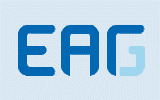-

16 December, 2010
On December 14-15 2010, the 13th EAG Plenary took place in Moscow.
The Plenary meeting was chaired by Mr. Oleg Markov, the EAG Chairman. The MONEYVAL Chairman Mr. Vladimir Nechaev also took part in the event. Among the participants of the meeting were experts from the EAG member states including China, Belarus, Kazakhstan, Kyrgyzstan, Russian, Tajikistan, Turkmenistan and Uzbekistan and observer countries and organizations took part in the meeting.
EAG membership expansion and various organizational issues
The 13th EAG Plenary welcomed obtaining by the Eurasian group status of FATF associate member in June. The participants of the Plenary highlighted the fact that associate membership will increase the integration of member-states into the international AML/CFT system.
The 13th EAG Plenary welcomed India as a member state of the Eurasian group.
The Plenary also granted observer status to the UN CTC.
According to the biannual rotation procedure the head of the Chinese delegation in the EAG, Deputy Director-General of the AML Bureau of the PBC Mr. Liu Zhengming was elected as the new EAG Deputy Chairman.
Ms. Galina Bobrysheva (Russia) was elected as the new EAG Executive Secretary.
EAG member-state follow-up reports:
Belarus
The Plenary acknowledged the progress of Belarus in implementing the FATF financial recommendations in terms of CDD, including with regard to foreign PEPs as well as applying the requirements to record keeping. The progress concerns amendments to the AML/CFT law and a special Decree of the national Council of Ministers which led to addressing certain deficiencies identified during the mutual evaluation. Belarus will submit its next follow-up report at the 15th EAG Plenary in December 2011.
China
The Plenary meeting agreed that China has achieved progress in implementing the FATF financial recommendations since December 2009. This refers to CDD requirements, reporting to the FIU on suspicious transactions, applying sanctions for violating AML/CFT legislation and freezing terrorist assets (R. 5, 8, 13, 17, SR. III). China will submit its next follow-up report at the 15th EAG Plenary in December 2011.
Kyrgyzstan
The Plenary welcomes the progress of the Kyrgyz Republic in implementing the FATF financial recommendations due to the adoption of a number of by-laws. It refers in particular to CDD as well as supervisory measures and freezing terrorist assets. New mechanisms were implemented to monitor transactions with high-risk countries and jurisdictions (R. 5, 21, 23 и SR. III). The Kyrgyz Republic will submit its next follow-up report at the 15th EAG Plenary in December 2011.
Russia
Since December 2009, Russia has achieved progress in implementing certain FATF Recommendations including enhancing CDD measures, providing for effective internal control in financial institutions, expanding authority of supervisory bodies in applying sanctions to the reporting entities for breaching AML/CFT legislation. Measures to monitor transactions with high-risk states and jurisdictions were enhanced. Russia has also elaborated recently a number of prominent legislative documents aimed at further enhancement of the national legislation which are to be adopted in 2011. The Russian Federation will submit its next follow-up report at the 15th EAG Plenary in December 2011.
Tajikistan
The EAG welcomes Tajikistan’s efforts to create the elements of a national AML/CFT regime particularly in establishing a national FIU. At the same time the EAG is concerned with the lack of a comprehensive AML/CFT system in Tajikistan which entails ML/TF risks. Tajikistan is strongly recommended to adopt shortly and no longer than by February 2011 a comprehensive AML/CFT law, which has been drafted.
Uzbekistan
The Republiс of Uzbekistan has achieved significant progress in addressing the deficiencies in implementing the core FATF Recommendations on CDD and data storage (R. 5,10). Considerable work has been done in order to implement other FATF Recommendations in terms of internal control, mechanisms of identifying suspicious transactions, measures in relation to foreign branches and subsidiaries as well as DNFBPs (R. 11, 15, 22, 12, 16). Taking into account the progress of Uzbekistan the Plenary meeting took the decision to remove Uzbekistan from the enhanced follow-up procedure. Uzbekistan will submit its next follow-up report at the 15th EAG Plenary in December 2011.
The 13th EAG Plenary also considered and approved the information of Kazakhstan and Turkmenistan on the progress on establishing and enhancing national AML/CFT regimes. EAG mutual evaluations of these states will be finalized in June 2011.
Typologies research
The 13th EAG Plenary approved of the EAG/MONEYVAL joint typologies research results on the risks of misuse of electronic money for ML/TF and criminal financial flows on the Internet.
The research demonstrated increasing ML/TF risks related to the spread of electronic technologies in the financial sector. It was noted that these risks are caused by high speeds of electronic money transfers and transactions conducted without customers’ presence which complicates financial investigations. In order to combat these crimes it was recommended to introduce threshold amounts for e-transactions along with the application of special requirements to block payments not containing information on their purpose, licensing e-money systems’ activities, etc.
The Plenary meeting has also adopted typology reports on the risks of misuse of non-traditional financial institutions for money laundering and terrorist financing and risks of money laundering through foreign trade transactions.
Typologies research on the risks of misuse of non-traditional financial institutions conducted by Russia was aimed at identifying key vulnerabilities in the activities of such organizations and formulating recommendations for risk mitigation.
In 2011 the EAG will continue two typologies studies started in 2010:
- Cash and cashless financial transactions involving organized crime groups (including ethnic crime groups) (Kyrgyzstan – Russia);
- Money laundering and terrorist financing through alternative remittance systems (USA).Two new projects will be carried out on the following topics:
- Money laundering through securities market (India);
- Preventing offences related to government procurements (Russia).Moscow, December 15, 2010.

 Login to your account
Login to your account Eng
Eng Рус
Рус